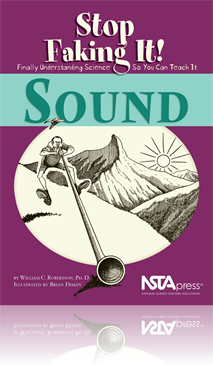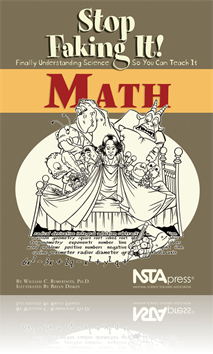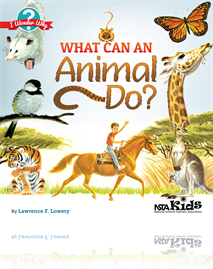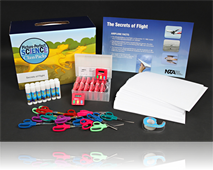All Resources
Workshop
Online Courses: AMNH Seminars on Science: Space, Time, and Motion
Physical Science How did the universe come into being, and why does it behave the way it does? This course uses Einstein’s work to delve into the properties of motion, time, space, matter, and energy....
Book Chapter
Waves Do Basic Math--Adding and Subtracting
So far we've been dealing with single sources of sound, and how they produce the pitches you hear. But you don't go to the symphony to hear a single oboe, and when you hear a solo guitarist, he or she doesn't keep your attention long by playing only...
Book Chapter
Most textbooks go through the procedures for solving math equations before they ever get to word problems, which is a bit backwards. You should know where the equations come from in the first place, so you might actually have a reason for solving th...
Book Chapter
You now know enough about force and motion to design a trip to the Moon. After all, if they can get a man on the Moon, you can understand science. In the first section of this chapter, the author teaches you the basics of getting to orbit with an eng...
eBook
What Can an Animal Do?: I Wonder Why (e-book)
This lively book proves that an animal can do all kinds of things! It encourages children to notice the characteristics and behavior of a world of different creatures: from gnawing, swimming beavers to spinning, climbing spiders to hopping, baby-toti...
Web Seminar
Archive: Using the NGSS Practices in the Elementary Grades, January 29, 2013
This web seminar took place on January 29, 2013, from 6:30 p.m. to 8:00 p.m. eastern standard time. The presenters were Heidi Schweingruber from the National Research Council, Deborah Smithfrom Penn State University, and Jessica J...
Web Seminar
This Web Seminar took place on May 2, 2011 from 6:30 p.m. to 8:00 p.m. Eastern Time. Presenting was Page Keeley, Senior Program Director at the Maine Mathematics and Science Alliance (MMSA) and NSTA Author. Ms. Keeley talked about the need and use o...
Class Pack
The Secrets of Flight ClassPack
*LAST CHANCE! This product is not eligible for return or exchange. All sales are final.* Using Picture-Perfect Science Lessons, Expanded 2nd Edition in your classroom is easier than ever! NSTA’s ClassPacks, each sufficient for a class of 28 st...
NSTA Press Book
The NSTA Reader's Guide to the Next Generation Science Standards
Not since the release of A Framework for K-12 Science Education has a document held such promise and significance for the science education community as does the Next Generation Science Standards. ...
By Harold Pratt









